What is Laughter?
Shaking of the belly and tightening of the facial muscles? I recently went “home” to Louisiana to visit my high school buddies. You know, the people that know you the best. These are the people that no matter how much time has passed, you feel like it was just yesterday. Despite the passage of time, when this group of girls gets together we giggle, squeal, snort, and fall on the floor from laughter. Although I received no sleep from the late night chats and giggle fest, I felt more alive and refreshed than I have in months.
Laughter is the best medicine for all of life’s ills.
- Laughter is Instinctive.
It is programmed into our genes. Babies instinctually learn to laugh before they learn to talk, crawl, or walk. Laughing behavior can be enhanced by environment. Children learn early that if they get a laugh from you they will repeat the behavior. Often it is embarrassing for the parent, like farting in public or saying a dirty word. Kids also laugh spontaneously and often need no social cues or jokes to get them started. It is amazing how they can crack themselves up. Adults tend to only laugh to ease social situations or when triggered by something funny. It seems as life stress and more serious adventures take over, laughter slows down.Did you know? Pre-school children laugh up to 400 times a day. Adults only laugh an average of 15 times per day.
It’s also instinctive for animals. Ask any dog owner and they will tell you their dog smiles at them. There are actually studies that show some animals may actually exhibit a form of laughter. Dogs will make a chuff or a huffing noise when they are happy to see you, when they play with other dogs, or when reunited with a dog or human. Rats have been studied and shown to exhibit a high pitched squeak that is not able to be heard by human ears. They squeak with play activity, social interaction, or while being tickled by humans. Chimpanzees and other great apes have a laugh like vocalization that is used socially, with play and when being tickled.
- Laughter can’t be controlled.
In social situations, it is often that two people together can’t quit giggling. I know I can’t control my laughter when someone trips, falls, or runs into a corner. I often feel bad for laughing first and then asking if the person is ok. Isn’t that why the funniest video shows are so popular? Who can control their laughter when a dad gets dinged in the head with a wiffle ball bat. You can’t consciously control laughter. You are unable to make yourself laugh on command. Sure, you can try but you often only get a half-hearted— ha. ha. - Laughter is absolutely contagious.
Just watch a baby in a full belly laugh. There is no way you can resist laughing and smiling yourself. Host a slumber party of school girls, and you will hear giggle fests until the early morning hours. In fact, there have been several reported cases of laughter epidemics in schools. The most famous case was in 1962 in Tanganyika. A group of three school girls started laughing and couldn’t stop. The laughter soon spread across the school and to neighboring communities. The laughter epidemic lasted six months and was only resolved after closing the schools to separate all of the students.This contagious benefit of laughter is why laugh tracks started being used on comedy shows. I once visited the taping of a late night show in Los Angeles. I was amazed as an audience member that one person’s sole job was to get the audience to laugh louder and be more enthusiastic. She showed us cue cards to start laughing. We earned prizes for the most enthusiasm.
It is true that laughter and happiness spread.
- Women laugh more than men.
When observing cross gender communication, women laughed 125% more than men. ( Women also talk more than men. Anyone knows that, right?). Men often are the initiators of laughter. They are more often the ones to crack the jokes. Look back at your elementary and high school. The class clown was always a male. When observing first dates, women that laughed more often were judged as more attractive, happier, more approachable, and more likely to be asked on a second date. Women often list laughter and sense of humor at the top of their qualities they look for in men. When evaluating healthy relationships, the number of times the woman laughs is used as an index for strength in the relationship. - The health benefits of laughter are amazing.
Your body releases endorphins the feel good chemicals in your brain when you laugh.
- Lowers blood pressure
- Increases muscle use and oxygenates your blood
- Decreases stress hormones such as cortisol and adrenaline
- Boosts your immune system
- The increases of human growth hormone, t-cells, and globulins from laughter help your body fight infections. Amazing
- Decreases pain…after surgery? There are studies that show decreased pain reactions and increased pain tolerance following laughter. Surgery patients that watch comedies following surgery report less pain and requested fewer pain medicines.
- People that report overall being happier are healthier and live longer.
Laughter is a Necessity.
It seems the most important benefit of laughter is to bind all of us humans in social interaction. We mostly use humor and laughter to bond us together, to show that we are good natured and happy. We use laughter to smooth over a tense social situation. We use laughter to show we are playful and that everything is okay in our world. As we become less interactive with each other we become less likely to laugh. As humans we were designed to be social creatures.
We have an absolute need to interact with other humans. We are losing these skills as we get more involved in technology. We often don’t talk to our friends anymore because we know what they are doing on Facebook. We don’t call anymore because it is just as easy to send a text. We don’t communicate with our co-workers face to face as often because it is easier to send an email. You are 30 times more likely to laugh in a group that in isolation. Laughter is a valuable and needed part of everyday life. Without it our health suffers and we become depressed.
Hold The Phone. No, That’s Not a Joke.
We should all make it a mission to find out what makes us laugh and do it more often. We should make it a point to pick up the phone and call that friend you haven’t seen in a while. We should all schedule more time with that one funny person that we know. Myself, I am off to buy a whoopee cushion because there is nothing funnier than a fart joke.
Sources
Butler, Carolyn. “Laughing May Help Ease Blood Pressure, Boost Mood and Enrich Health In Other Ways.” Washington Post. 24 October 2011. Web.
Mayo Clinic Staff. “Stress relief from laughter? It’s no joke.” Mayo Clinic. 23 July 2013. Web.
N.a. “Laughter therapy.”Cancer Treatment Centers of America. Web.
Provine, Robert. “Laughter.” American Scientist. Web.
Smith, Melinda and Jeanne Segal. “Laughter is the Best Medicine.” Help Guide. April 2014. Web.
Sroufe, Alan L. and Jane Piccard Wunsch. “The Development of Laughter In The First Year of Life.” Child Development. Vol. 43, No. 4 (Dec., 1972), pp. 1326-1344. Web.
Suzanne, Phillips.” Laughter as a Powerful and Inexhaustible Resource.” PBS. Web.

